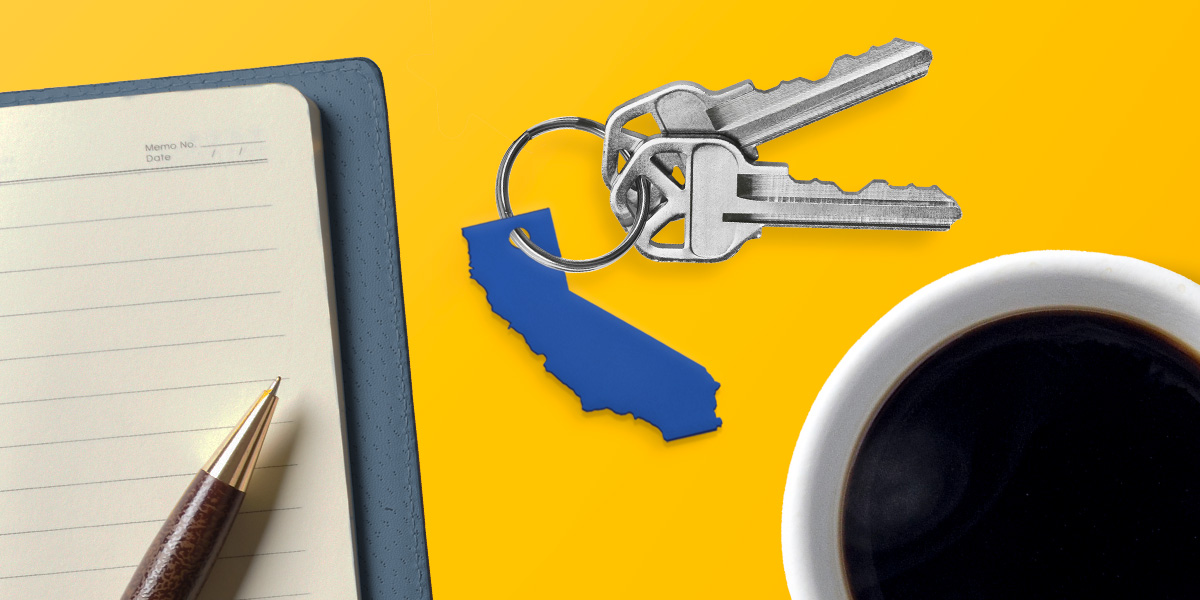-
Personal Banking -
Insights
Questions to Ask Your Real Estate Agent
Buying a home is one of life’s biggest milestones, but the process can feel overwhelming with so many steps involved. Fortunately, having the right agent by your side can help alleviate some of the stress. Before you commit to a real estate agent, though, it’s important to ask specific questions to make sure they are a good fit for your needs. Here are 27 questions to ask an agent when buying a home.
First Choice: A Real Estate Agent or Lender
When you’re figuring out how to budget for your first home, deciding whether to start with a lender or a real estate agent depends on your goals. A lender can provide a clear idea of what you can afford, helping you set your budget and secure a preapproval.
With a preapproval, your real estate agent can then help you find homes that fit within your budget.
However, don't forget that getting approved for a certain amount does not always mean that you can afford that mortgage. While your lender looks at your financial situation during the loan application process, it's ultimately your responsibility to make sure you're purchasing a home that works with your budget.
On the other hand, starting with a real estate agent has its own advantages. An agent can educate you on the local market, giving you insight into the types of properties available, neighborhood trends and what’s realistic within your price range. In addition, many agents have strong relationships with lenders they trust, and they can offer valuable recommendations to help you find a lender who fits your needs.
Preparing for Your First Meeting with a Real Estate Agent
Once you find a real estate agent you'd like to work with, the next step is preparing for your first meeting. Start by gathering important financial information. Even if you haven’t been preapproved for a mortgage yet, having a rough idea of your budget will help your agent customize their advice and home recommendations. Bring information on your savings, income and debt to give them a clear picture of your financial situation.
Next, think about your priorities. What are your must-haves in a home? Are you focused on a particular neighborhood, or are certain features like a large backyard or modern kitchen at the top of your list? The more specific you can be about what you want, the better your agent can help you find your dream home. It’s also helpful to be upfront about any deal-breakers, whether it’s commuting distance or the condition of the property.
Lastly, prepare a list of questions. Your real estate agent is there to guide you, and the first meeting is the perfect time to get clarity on how they work, what the process will look like and what you should expect.
Questions to Ask a Prospective Real Estate Agent
When considering working with a real estate agent, it’s beneficial to ask them questions to make sure they’re the right fit for you. The right agent will understand your needs, know the market well and have a strategy that aligns with your needs and goals.
Here are some questions to consider when interviewing prospective agents.
1. How Long Have You Been a Real Estate Agent?
If an agent has been in the market for a while, they’ve likely developed the skills to help you buy or sell quickly. That said, even a newer agent can be a great choice, as long as they bring strong recommendations from past clients.
2. Do You Represent Buyers and Sellers?
Some agents focus solely on buying or selling, while others do both. It’s helpful to know what your agent's strengths are so you can see if their experience aligns with what you need. Agents who work on both sides of the transaction might offer valuable insights from both perspectives.
3. Do You Have a Team that You Work With?
It’s important to know whether your agent will be handling your needs directly or delegating tasks to their team. Some agents rely on support staff for things like paperwork or scheduling, so ask who else you'll be working with and what your agent will manage personally.
4. What Certifications Do You Have?
To work with clients, real estate agents must pass a licensing exam, and most states require them to do continuing education. Some agents pursue additional certifications, whether it’s for working with military families, seniors or luxury homes. These added credentials help them offer more personalized guidance to fit specific client needs.
5. How Many Homes Have You Closed This Year?
The number of homes an agent has closed in the past year is a good indicator of their activity and experience. If an agent has been closing homes regularly, it’s a good sign they’re staying up-to-date with the market and know what’s going on with current trends.
6. What Price Range of Homes Do You Deal With?
Every real estate market is different, and agents tend to focus on certain price brackets. If an agent typically works with homes outside your budget range, they may not be the best fit for your needs. You’ll want someone who is familiar with the homes and neighborhoods that align with your specific needs.
7. How Many Clients Do You Currently Work With?
An agent juggling too many clients at once may not have the time or resources to give you the attention you deserve. While it’s normal for agents to work with multiple clients, understanding their current workload can help you gauge how responsive and available they’ll be for you.
8. What Neighborhoods and Areas Do You Specialize in?
An agent with local expertise can be a real advantage. Agents who focus on specific neighborhoods often know more about the area’s market trends, new developments and what it’s really like to live there. This insight can make a difference when finding the right home.
9. How Will You Determine Which Homes Are the Best for Me?
It’s important to understand how your agent plans to narrow down the options. Ask how they’ll factor in your budget, preferences and must-haves to find homes that fit your needs. A good agent will take your priorities seriously and explain their process for spotting listings that fit.
10. Do You Work Full-Time or Part-Time as an Agent?
A full-time agent is generally more immersed in the market and available to respond to your needs quickly, whereas a part-time agent may have other commitments. Having an understanding of their availability and how they balance their schedule can affect your timeline and the attention you receive.
11. What is Your Availability?
Buying a home often requires quick decisions, so it’s important to know how often your agent will be accessible. Ask about their typical work hours and how they handle urgent situations, especially if you’re working within a tight market where properties move quickly.
12. Do You Have Connections for Off-Market (Pocket) Listings?
Some homes are sold without ever being publicly listed. Ask your agent if they have access to pocket listings—these are properties that aren't listed on the MLS (Multiple Listing Service) but may be available through private connections. This could give you an edge in a competitive market.
13. What’s Your Strategy for Making a Competitive Offer?
In a hot market, a well-crafted offer can make the difference between winning or losing out on a home. Understanding your agent’s strategy for making competitive offers, especially if bidding wars are common, will give you insight into their negotiation skills and how they can help you stand out from other buyers.
14. What are the Additional Costs of Purchasing a Home?
Aside from the purchase price, there are other expenses to consider. These can include closing costs, inspections and homeowner’s insurance. Ask your agent to explain what costs you should be prepared for and how much they typically add up to. This will help you avoid surprises later in the process.
15. How Does Your Commission Work?
Real estate commissions are usually a percentage of the home’s sale price, but recent changes have changed how this works. Sellers now have the option to decide if they’ll pay the buyer’s agent at all, and if so, how much.
Plus, sellers’ agents can no longer advertise commission offers to buyer’s agents on listing services. Ask your agent how their commission is structured, what costs you might be responsible for and if there’s room for negotiation.
16. Whom Do You Recommend for Professional Services?
Your agent’s network can be a valuable asset as they may have connections to inspectors, contractors, mortgage lenders and more. They should be able to recommend reliable professionals to help you through every stage of the homebuying and homeownership process.
Questions to Ask When You Have Found Your Home
Once you've found a home that you’re interested in, the next step is making sure you ask the right questions to protect your interests. Here are some things you should clarify with your agent before moving forward with an offer.
1. How is the Home Priced to Comps?
Your agent should provide you with a breakdown of comparable sales (comps) to help you determine if the asking price is reasonable. This gives you a solid foundation for deciding whether to make an offer or negotiate.
2. How Long has the Home Been Listed?
The length of time a home has been on the market can give you insight into the seller’s motivation and flexibility on price. If it’s been listed for a while, there may be more room to negotiate. On the other hand, if it's a new listing, you may face competition from other buyers.
3. What Concessions Should I Ask For?
Concessions, like asking the seller to cover closing costs or make certain repairs, can be part of your negotiation strategy. Your agent can help you identify what concessions might be reasonable to request, based on the condition of the home and local market trends.
4. How Will We Negotiate a Price for a Home?
Negotiating can be tricky, so it’s important to know your agent’s strategy. Will they start with a lower offer or aim for something closer to the asking price? Your agent should explain their strategy and how they plan to advocate for the best possible deal on your behalf.
5. How Will You Present My Offer to Sellers?
Your offer should be clear, professional and easy to understand. While some details may be communicated informally, the formal offer is often shared through secure platforms for electronic signatures. Knowing how your agent will handle this process helps to ensure everything is presented accurately.
6. What Are the Potential Closing Costs for this Sale?
When learning how to buy your first home, it's important to understand all the costs involved. Ask your agent to provide an estimate of the fees associated with closing, like title insurance, taxes and lender fees, so there are no surprises later on.
However, your real estate agent can only use their past experience to give you an idea of what your closing costs might be. To get a more accurate estimate, you should speak with your lender. If you're working with an escrow company, they'll also be able to provide you with an estimate of certain closing costs.
7. What is the Anticipated Time for Closing?
The timeline for closing can depend on a number of factors, including the lender and seller. Your agent should give you an idea of how long the process might take from offer acceptance to closing day.
8. How Much Earnest Money Should I Offer?
Earnest money shows the seller you're serious about buying the home. It's a deposit that you pay to the seller after they've accepted your offer that goes toward your final downpayment during the closing process.
Ask your agent how much is typical in your market and for this particular home. Offering the right amount can make your offer more attractive without overcommitting funds.
9. What Happens if Something is Found During Inspection?
Inspections can uncover issues with a home, but that doesn’t always mean the deal is off the table. Ask your agent how they plan to address any concerns that come up. They’ll be able to advise you on whether it makes sense to request repairs, negotiate for a price adjustment or explore other options.
In some instances, you might have an inspection contingency that is part of your offer letter. With this contingency, you can back out of the deal for any discoveries made during the inspection process.
10. What Contingencies Do You Suggest?
Contingencies protect you as a buyer, allowing you to back out or renegotiate if certain conditions aren’t met. Your agent should help you decide what contingencies, like inspection or financing, make sense for your situation.
11. What Happens if an Appraisal is Under the Offer Price?
If the home appraises for less than your offer, this can cause issues with financing. Ask your agent how they plan to handle the situation if this occurs. They might negotiate with the seller to lower the price or work with the lender on other solutions.
Closing Thoughts on Selecting Your Real Estate Agent
Choosing the right real estate agent is one of the most important steps when you are looking to buy a home. A great agent will not only guide you through the process but also advocate for your best interests every step of the way.
As you prepare to buy a home, make sure to educate yourself about the process. City National's homebuying resources can be a great place to start to learn more about mortgages, the buying process and many other topics relevant to homebuyers.
This article is for general information and education only. It is provided as a courtesy to the clients and friends of City National Bank (City National). City National does not warrant that it is accurate or complete. Opinions expressed and estimates or projections given are those of the authors or persons quoted as of the date of the article with no obligation to update or notify of inaccuracy or change. This article may not be reproduced, distributed or further published by any person without the written consent of City National. Please cite source when quoting.
Loans and lines of credit are subject to credit and property approval. Additional terms and conditions apply. Not all applicants will qualify. Home equity lines of credit are not available in Texas.




